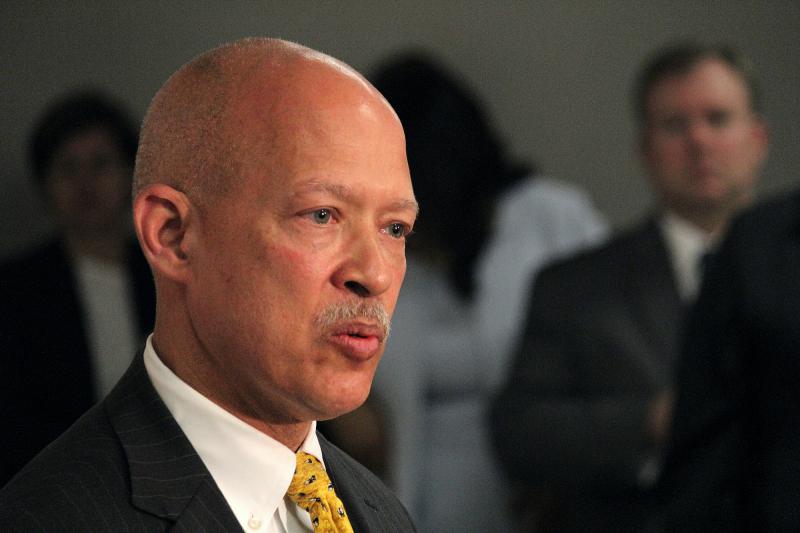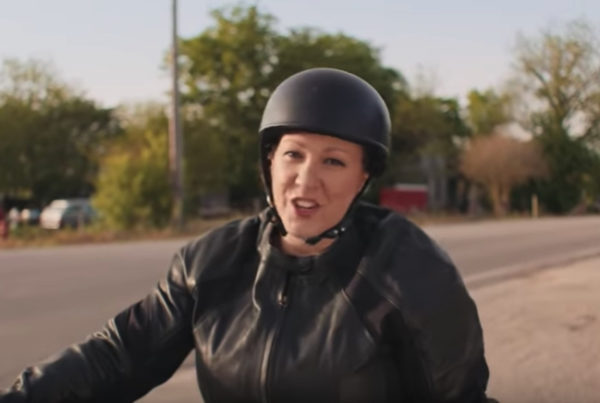The Texas Standard interviewed KERA’s Christopher Connelly about Dallas County’s new District Attorney John Creuzot, and his policies for petty theft and probation. His full article from keranews.org is below.
From KERA:
Nearly two weeks after publishing a letter to the residents of Dallas County outlining a broad reform agenda, newly minted District Attorney John Creuzot is still dealing with criticism over a petty theft policy. Despite the attention, though, Creuzot’s approach to theft is unlikely to be his most impactful reform.
His other attention-grabbing decision — to automatically dismiss most first-time pot possession cases — is also unlikely to be the policy that benefits the most people.
It’s the somewhat wonky and technical procedural changes to the district attorney’s approach to probation that could have some of the broadest and longest-range effects of his first wave of reforms.
After all, crimes from midlevel misdemeanors up to some of the most serious felonies can land a person on probation.
A big fight over petty thefts
Nonetheless, even at a town hall last week that was organized by criminal justice reform advocates who backed Creuzot’s election, the probation changes barely got a mention.
Instead, he ended up talking about the theft policy that continues to dominate headlines. (He talked about a lot of issues, actually, and took questions for over an hour. You can watch it here.)
Some people were confused, Creuzot said, and it was his own fault: He was too vague in his letter describing the policy, which directs prosecutors to dismiss petty theft cases under $750 dollars in cases where individuals steal essential items like food, baby formula and diapers because they’re poor and would otherwise go without. Thefts for economic gain will continue to be prosecuted. He clarified the changes in an earlier statement posted online, he said, and pushed back on his critics.
“In my lack of clarity, those who want to oppose change jumped on it,” Creuzot told the mostly friendly crowd. “And I became a socialist and all this other nonsense people are saying.”
Earlier, in a tweet, Texas Gov. Greg Abbott had labeled the theft policy a wealth redistribution scheme. Police unions have panned the idea and called for Creuzot to step down, while some business owners expressed alarm. From critics in all corners, and even some allies, the concern has been that dropping the cases of the most desperate thieves gives a license to steal to anyone willing to say they did it because they’re poor.
“I do not accept that premise,” Creuzot said to the Dallas City Council’s public safety committee on Monday, as the theft policy continued to stir debate, adding that he planned to do rigorous research to see that his policies are effective in reducing incarceration and don’t hurt public safety.
More than anything, though, Creuzot argued that under his policy, very few theft cases will be dropped because very few poverty-driven shoplifters steal items worth more than $99.
In Texas, petty theft of items under $100 is a Class C misdemeanor, which is treated like a traffic ticket. If caught, the thief gets a citation, goes to municipal court, where they’ll get a fine or community service hours, and can be connected with services and programs they need if they’re struggling to make ends meet, Creuzot said. Those cases will never end up in the DA’s office to be dismissed in the first place. (Class B thefts are between $100 and $749, and those do go to the DA’s office).
The numbers aren’t especially clear: Dallas Police Chief Renee Hall told the public safety committee her department charges roughly 5,000 cases a year for theft under $750, but she didn’t bring the breakdown of how many were under $100 and therefore unaffected by the DA’s policy. There are more theft charges from police departments outside of the Dallas city limits but within the county’s borders that would factor into this calculation as well.
Probation changes are more significant
Compare that to the roughly 23,000 people on probation in Dallas County who’ll be impacted by Creuzot’s new probation-related policies. Probation allows someone convicted of a crime to remain out of jail and in the community, but subjects them to the supervision of a probation officer and requires that they comply with a list of court-ordered conditions. If they don’t, they risk losing probation and being incarcerated.
Reforming probation is a relatively unsexy area of criminal justice policy reform, according to Michelle Phelps, who researches probation. Much more attention is paid to prisons, policing and drug policy. But she said that, over the last few decades, the United States has built a system of “mass supervision” that leaves 4.5 million Americans teetering on the edge of freedom, nearly twice the number of people who are incarcerated.
From the very birth of modern probation, Phelps says, there was a concern that probation served to actually widen the net of the criminal justice system and ensnare even low-level offenders who would otherwise pay a penalty and go on to be law-abiding on their own. This net-widening effect also extends “once you put folks on supervision, you make them more vulnerable to incarceration or re-incarceration for violations of probation [conditions].”
In his letter, Creuzot instructs his prosecutors not to ask for judges to revoke a person’s probation or ask for jail or prison time based on technical violations of probation, like failing drug tests, missing payments of probation fees or other conditions set by a judge. A probationer should only be locked up, Creuzot says, if they commit another crime or skip town.
Creuzot also laid out presumptive lengths for probation terms that prosecutors should ask for when working out a plea deal or trying a case:
– Misdemeanor: six months presumptive term
– State jail felonies: 180 days presumptive term
– Second and third-degree felonies: two years presumptive term
– First degree felonies: five years presumptive term
“All of these can be extended by the judge if he or she thinks a person needs more time,” he adds.
Creuzot says there hasn’t been a standard for probation term lengths at the DA’s office, “and so what we’re doing is is keeping people tied up in the criminal justice system without any empirical justification for doing so.”
So Creuzot says he set presumptive probation terms based on research into how long an individual typically needs to be on probation before they’ve proven that they’re going to stay out of trouble. Those are, he says, well short of the maximum probation terms under Texas law.
KERA reached out to presiding judges for Dallas County’s county and district courts to comment on the policy changes, but neither did.
The probation decision was praised by David Villalobos from the Texas Organizing Project, a group advocating for working-class black and Latino people that supported Creuzot’s election bid.
“Those are systems that just really keep them incarcerated and separate them from their families. So these types of reforms are things that really excites our membership,” Villalobos said.
Dallas police Sgt. Sheldon Smith, president of the National Black Police Association’s Dallas chapter, commended Creuzot for thinking outside of the box on probation (after he lambasted him over the theft policy).
“A lot of those technical violations have to do with not being able to pay the fees,” Smith said. “Some people have mental [health] issues, and I think they need help. Some are drug dependent, I think they need help. Putting them in jail does not address some of the issues,” that people who violate probation conditions need, Smith said.
Phelps, the probation researcher, says poverty also makes it hard to comply with probation’s strict conditions, and people on probation are more likely to be poor. Monthly probation fees make up 40% of Dallas County’s probation department budget, and paying those fees is typically a condition of probation.
“It just really sets up people who are already marginalized, already vulnerable, up for failure and sets up this pathway to jail or prison,” Phelps said.
Phelps calls Creuzot’s the proposal “very much evidence-based,” and that research shows that once someone has been successful on probation for a year or two, the likelihood that they’ll do something that warrants their probation to be revoked decreases significantly. That makes long supervision terms a waste of resources and acts as an unnecessary burden to the offender, she says.
She says reform-minded prosecutors like Creuzot should also work to put fewer people on probation to begin with.
“Fundamentally, if you want to address how many people have that stigma of supervision and go through the burdens of supervision, then you have to address the front door as well and make sure people aren’t getting supervision for low level misdemeanors,” she said, crimes that used to warrant one-time penalties like fines or community service and would never have resulted in probation.
















